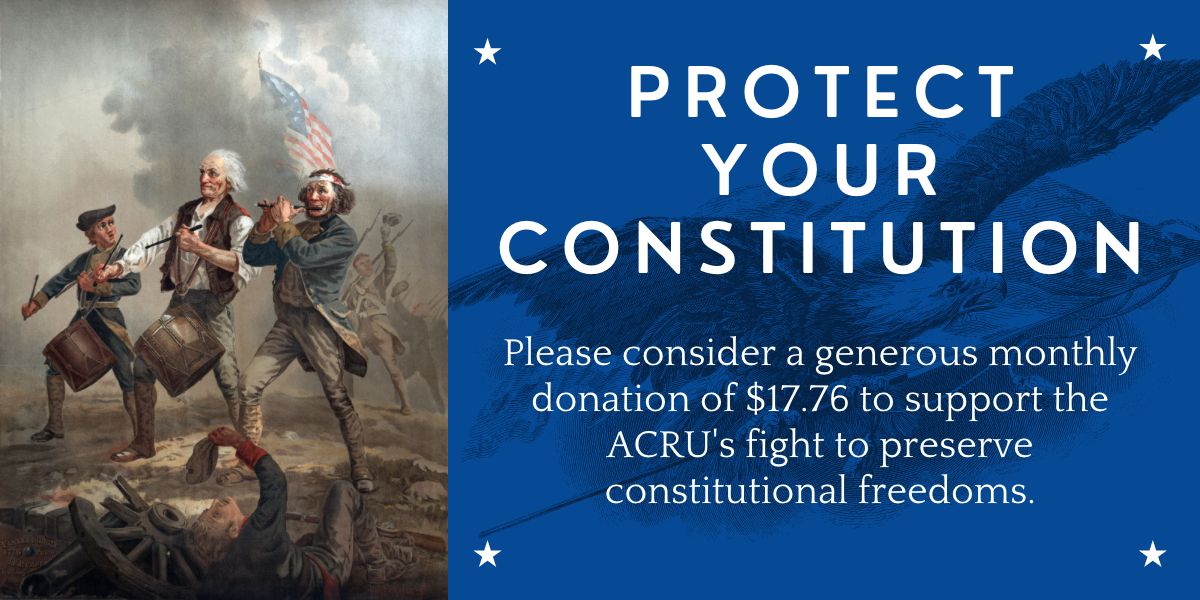Supreme Court to Decide Which Cases to Take This Year
ACRU Staff
September 27, 2017
This column by ACRU General Counsel Ken Klukowski was published September 25, 2017 by Breitbart.
WASHINGTON, D.C. — Supreme Court justices are voting on close to 2,000 petitions for review behind closed doors on Monday, deciding which cases to hear during the Court’s annual term, which starts October 2.
Each annual term of the Supreme Court has seven sittings, which are two-week periods of hearing oral arguments. They have one per month, starting the first two weeks of October, and finishing with the final two weeks of April. Decisions in those cases begin just days or weeks after the term commences in October, and the final decisions are handed down on the Court’s last session in the final week of June.
Most of the Supreme Court’s docket is discretionary. The Constitution requires that the Court hear cases between two or more states in the Union. Congress also mandates that the Court hear appeals from lower court decisions involving certain federal statutes, such as challenges to the constitutionality of a congressional redistricting map, but those statutes are rare, so typically the Court has a half-dozen or so cases that it must hear each year.
All other cases are picked up for action by the Supreme Court if at least four of the nine justices vote at one of their closed-door conferences to grant a petition for a writ of certiorari, which is the term for the Court’s granting review of a lower court’s decision.
The justices thus have almost complete control over which cases ultimately fill their docket, determining for themselves the vast majority of the roughly 80 cases the Court decides each year, picking from among close to 7,000 petitions.
The Court has been in recess since the last week of June, which marked the end of October Term 2016. The justices had already granted review by that time in all the cases that fill the Court’s oral argument docket for this October, November, and December.
Now the Court begins filling the schedule for the final four sittings of October Term 2017, the arguments for which will begin in January 2018 and go through April.
The justices hold these closed-door conferences on a weekly or biweekly basis during the nine months that the Court is in session. The nine justices are the only people present for these extremely sensitive discussions; no law clerks or support staff are permitted. If a justice needs a glass of water or someone knocks at the door to deliver a message, it is the duty of the junior-most justice (a role currently occupied by Justice Neil Gorsuch) to answer the door or get the water.
Before the annual term begins on the first Monday of each October, the justices hold a marathon pre-Term conference to consider all the petitions for certiorari that have piled up at the Court since June.
While most of the petitions will be summarily denied without any discussion, there are a number of significant pending cases for the justices to consider. Some of these case names and their legal issues include:
- National Institute of Family and Life Associates v. Becerra: Whether a California law requiring pro-life pregnancy centers to post information on abortion providers violates the First Amendment’s Free Speech Clause or Free Exercise Clause.
- Elonis v. United States: Whether a person can be convicted of threatening a person when the language at issue was only an online rant.
- Smith v. United States: Whether the Hobbs Act and a couple public-corruption statutes are unconstitutional because they are overbroad (which would violate the First Amendment) or too vague (which would violate the Constitution’s Due Process Clause).
- Cohen v. Sessions: Whether a person transporting medical marijuana has standing under Article III of the Constitution to file a lawsuit seeking a court determination as to whether that driver could face criminal charges.
- Final Exit Network v. Minnesota: Whether it violates the First Amendment to convict a person for participating in an assisted suicide.
- Buker v. Howard County: Whether county government violates First Amendment for firing county employee in retaliation for Facebook “likes” and “dislikes.”
- Abeles v. Metropolitan Washington Airports Authority: Whether it violates Title VII for suspending a Jewish employee for taking off work on a Jewish holiday.
The Court could grant review in as many as 20 cases from the long conference. The results of Monday’s conference will be released on Thursday at 10AM.
JOIN ACRU's PATRIOT CLUB





